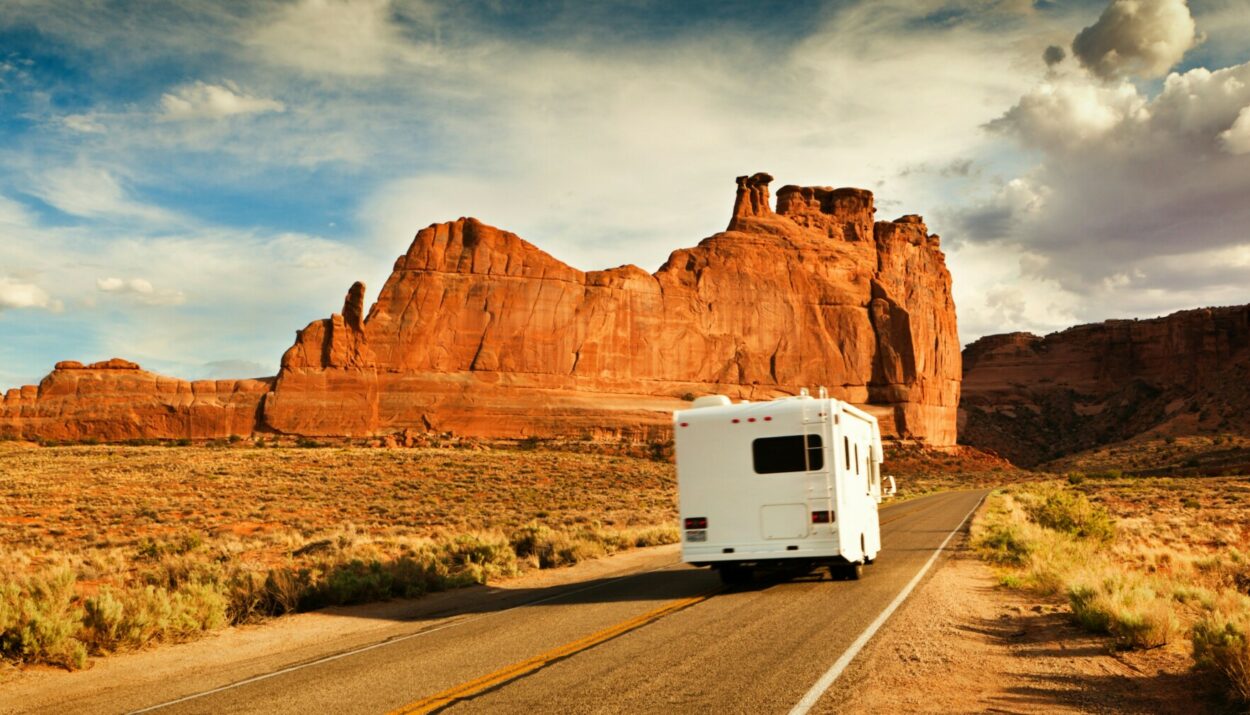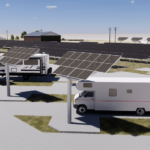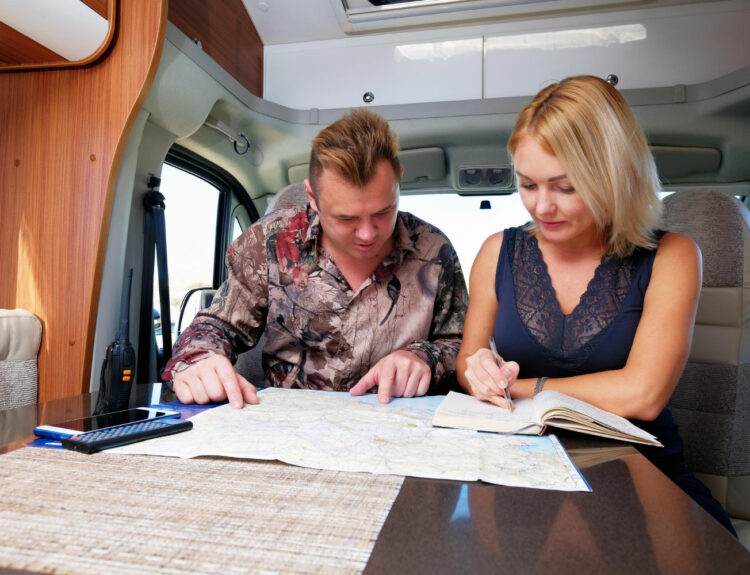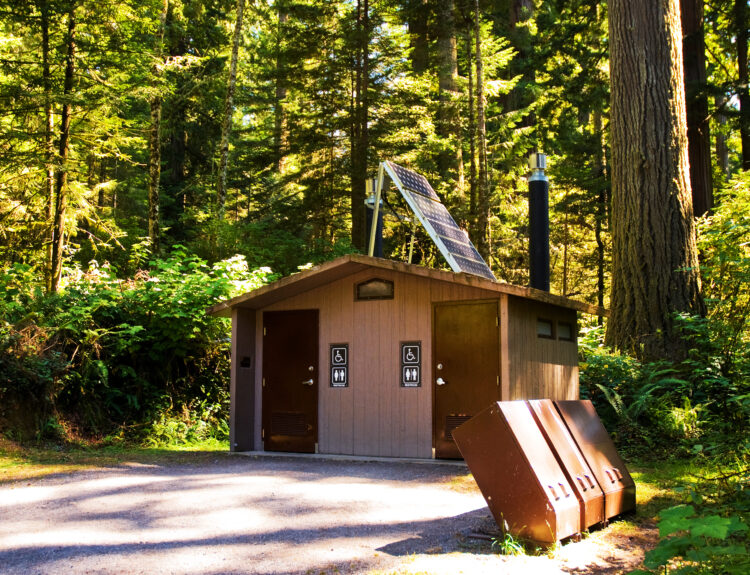Are you considering starting your own RV park business but unsure of the costs involved? In this comprehensive article, we will break down the initial expenses of purchasing land, obtaining permits, and developing infrastructure.
We will also explore the ongoing costs of running a successful RV park, from staffing to marketing.
Finally, we will discuss the potential profits that come with this venture.
But before delving into the intricacies of the costs involved, it’s essential to establish why investing in RV parks is a prudent choice. Understanding the underlying factors that make RV parks a promising venture will provide valuable context for aspiring entrepreneurs considering entry into this thriving industry.
Why RV Parks Are a Good Investment?
In recent years, the allure of RV travel has experienced an unprecedented surge, captivating adventurers seeking freedom, flexibility, and a closer connection with the great outdoors. As more individuals and families embrace the RV lifestyle, the demand for suitable accommodation options, such as RV parks, has skyrocketed.
According to data from the Recreational Vehicle Industry Association (RVIA), the RV market keeps experiencing remarkable growth, with shipments in December 2023 showing an 8.1% increase compared to December 2022, reaching record levels in recent years.
This surge in RV ownership and travel reflects a broader cultural shift towards experiential and adventure-based tourism, where travelers prioritize experiences over material possessions. Travelers are increasingly drawn to localized, nature-centric holidays that offer authentic experiences and a deeper connection with their surroundings.
As consumers seek to escape the hustle and bustle of city life and embrace a more sustainable and mindful approach to travel, the appeal of RV travel becomes evident. RVs provide the freedom to explore off-the-beaten-path destinations, immerse oneself in nature, and create lasting memories with loved ones.
This growing preference for RV travel underscores the need for well-equipped and conveniently located RV parks to accommodate the influx of road-trippers.
Consequently, the RV park industry has experienced a parallel boom, with entrepreneurs recognizing the lucrative business potential inherent in catering to this expanding market. The number of privately owned RV parks and campgrounds has been steadily increasing, with over 15,000 establishments operating across the United States.
What Are the Initial Costs of Starting an RV Park Business?
Starting an RV park business involves various initial costs that encompass land purchase, zoning and permit fees, site development, infrastructure setup, amenities installation, and marketing initiatives.
Land Acquisition
The first, and often most substantial, cost is the purchase of land. Prices vary widely depending on location, size, and accessibility. Prime locations near tourist attractions or natural beauty spots come with a premium price tag. The amount of land needed will depend on the size of the campground you want to build.
Furthermore, the land must be suitable for RV parking, which might involve additional land surveying and environmental impact assessments. It’s not just about buying land; it’s about investing in a location that will attract RVers year after year.
Zoning and Permits
Before breaking ground, understanding the local zoning laws is imperative. Zoning laws dictate what you can and cannot do with your property, and securing the right permits can be a lengthy and costly process.
This phase may involve fees for legal consultations, application submissions, and possibly alterations to your plan to meet regulatory standards. Each jurisdiction has its own set of rules, making it difficult to generalize costs, but entrepreneurs should allocate several thousand dollars for this stage.
Infrastructure Development
Developing the infrastructure of an RV park is akin to building a small town. Key infrastructure costs include:
- Roadways and Parking: Constructing paved or gravel roads and parking spots for RVs. This includes costs for materials, labor, and possibly engineering services.
- Electrical, Water, and Sewage Systems: Ensuring each RV spot has access to electricity, clean water, and sewage disposal. The complexity and cost of these systems can vary greatly, depending on the site’s size and layout.
- Internet and Wi-Fi Access: In today’s connected world, providing reliable internet access is almost mandatory. Installation of a robust Wi-Fi network represents a significant cost that varies based on the park’s size and the chosen technology.
Infrastructure development can quickly become the most expensive part of starting an RV park, easily running into hundreds of thousands of dollars.
Amenities and Services
Amenities can significantly enhance your RV park’s appeal, but they also add to the startup costs. Basic amenities include bathrooms, showers, and laundry facilities, which require plumbing, construction, and equipment.
Additional offerings might encompass recreational areas such as swimming pools, playgrounds, or community halls, each with its own set of construction and maintenance costs.
Providing rental services for equipment or hosting organized events can also attract more visitors but require an upfront investment in inventory and planning. Staffing is another crucial consideration, from maintenance personnel to customer service representatives, adding to the operational costs even before the park opens.
Initial Marketing Initiatives and Website Development
In today’s digital age, a compelling online presence is crucial for attracting customers to your RV park. The costs for website development can vary, depending on whether you opt for a simple, template-based site or a custom-designed website with advanced features like booking systems.
Additionally, digital marketing efforts, including social media advertising, SEO (Search Engine Optimization) to improve your site’s visibility on search engines, and email marketing campaigns, are essential components of your marketing strategy.
To help RV parks through this process, RoverPass created Premium Website Builder, a solution that allows RV parks to build high-quality websites that attract more visitors and increase their revenue. Our team of experts in writing, designing, and developing will create a website that sets you apart from the competition.
You can also connect your website with our campground reservation software, so you can have a fast and easy way to sell your services 24/7.
Estimating Your Total Startup Costs
The total startup cost for an RV park can range significantly based on the factors mentioned above. While costs can vary significantly based on all of these factors, a rough estimate for the total cost of the initial setup of an RV park may range from $180,000 to $450,000 for small and mid-size parks, while building a bigger RV park can cost more than $1,000,000.
It’s vital to conduct a detailed cost analysis, considering both fixed (land, permits) and variable (construction, amenities) expenses, to develop a realistic budget. Furthermore, setting aside a contingency fund for unforeseen expenses is wise, as it’s common for projects to exceed initial estimates.
In conclusion, the financial barrier to entering the RV park business can be high, but so is the potential for a rewarding venture. Thorough planning, budgeting, and understanding of costs are essential steps toward creating a successful RV park that delights travelers and generates profits.
Entrepreneurs should approach this venture with clear eyes, recognizing the challenges but also the significant opportunities within the booming RV industry.
What Are the Ongoing Costs of Running an RV Park Business?
Running an RV park business involves ongoing costs that encompass staff expenses, maintenance and repairs, marketing efforts, insurance coverage, and utility bills.
Staff and Management Expenses
Maintaining optimal staffing levels is key to meeting customer demands promptly, enhancing the guest experience, and maximizing operational effectiveness in delivering high-quality services. Effective management structures play a vital role in coordinating staff efforts, fostering teamwork, and streamlining processes for efficient operations.
By investing in skilled staff, implementing clear communication channels, and aligning roles with business goals, RV park businesses can bolster their reputation, attract repeat guests, and drive profitability through improved service quality and operational excellence.
Maintenance and Repairs
Regular maintenance and timely repairs are essential ongoing tasks for an RV park business to preserve infrastructure quality, ensure guest safety, and uphold operational standards.
Adhering to a structured maintenance schedule not only prolongs the lifespan of key facilities like water lines, electrical systems, and recreational amenities but also minimizes the likelihood of unexpected breakdowns that can disrupt the guest experience.
When repair needs arise, engaging expert service providers ensures that issues are addressed promptly and comprehensively, avoiding potential safety hazards and operational downtime.
By allocating a portion of operational expenses towards proactive maintenance efforts, RV park businesses can enhance guest satisfaction through a consistently well-maintained environment while minimizing costly emergency repairs in the long run.
Marketing and Advertising
Aside from the initial marketing costs explored above, there are marketing and advertising initiatives that are ongoing costs aimed at driving customer engagement, brand visibility, and revenue generation for an RV park business.
Implementing successful promotional strategies not only helps attract potential guests to your RV park but also plays a crucial role in increasing occupancy rates. By utilizing targeted marketing efforts and creative branding tactics, businesses can create a strong identity that resonates with their target audience.
A well-thought-out advertising campaign can differentiate your park from competitors and position it as a preferred choice for travelers. Consistent promotional activities help in staying top-of-mind with customers and building a loyal customer base for sustained success in the hospitality industry.
Insurance and Taxes
Securing appropriate insurance coverage and managing tax responsibilities are ongoing costs critical for legal compliance, risk mitigation, and financial stability in an RV park business.
Insurance policies play a crucial role in protecting the business from potential liabilities arising from accidents, property damage, or legal claims. By having the right insurance coverage in place, the business can safeguard its assets and reputation.
Thorough tax planning ensures that the business complies with tax regulations, maximizes available deductions, and minimizes tax liabilities.
As explained above, legal compliance measures, such as adhering to zoning laws and obtaining necessary permits, are essential to operate the RV park business within the boundaries of the law and avoid costly legal consequences.
Utilities and Other Operational Expenses
Utility bills and other operational expenses constitute ongoing costs that account for infrastructure maintenance, guest services, and day-to-day operational needs in an RV park business.
Efficiently managing utility expenses, such as electricity, water, and waste disposal, is crucial to controlling operational overheads. Regular maintenance tasks like landscaping, cleaning facilities, and repairing amenities add to the daily maintenance costs. Ensuring that these costs are budgeted for and controlled is essential for the smooth functioning of the RV park business.
Importance of Effective Campground Management and Accounting
Effective campground management and accounting are pivotal for the operational success and financial sustainability of an RV park. Efficient management encompasses a wide array of tasks, from overseeing daily operations and ensuring customer satisfaction to managing staff and maintaining facilities.
Implementing campground management software can streamline reservations, check-ins, and maintenance schedules, enhancing operational efficiency and guest experience.
Accurate and comprehensive accounting is equally crucial. It involves tracking income from site rentals, amenities, and additional services, alongside managing expenses such as utilities, payroll, and maintenance. Proper accounting practices ensure that the RV park operates within its financial means, identifies cost-saving opportunities, and remains compliant with tax obligations. Also, using efficient payroll management ensures accurate payment to employees, contributing to the overall financial health of the business.
Roverpass is committed to helping RV parks acquire the tools they need to grow and thrive in the digital era by improving their management and accounting capabilities. Our campground reservation software can now be integrated with Quickbooks accounting software, which can help RV park owners and managers streamline campground accounting processes and simplify bookkeeping tasks.
Together, effective management and diligent accounting practices form the backbone of a profitable RV park. They not only contribute to a smoothly running operation but also enable owners to make strategic decisions for profit maximization.
By focusing on these areas, campground owners can better understand their business’s financial health, forecast future trends, and identify areas for growth and improvement. This strategic approach to management and accounting is indispensable for long-term success in the competitive RV park industry.
What Are the Potential Profits of an RV Park Business?
An RV park business offers various revenue streams through campsite rentals, amenities provision, and additional income sources that contribute to the overall profit margins and financial success.
Income from Campsite Rentals
Generating income from campsite rentals forms a primary revenue stream for an RV park business, with guest occupancy rates directly influencing financial performance and profitability.
One key aspect that impacts revenue generation in campsite rentals is the variety of accommodation structures offered to guests. From basic tent sites to premium cabins or RV hook-up spots, each option comes with its own pricing strategy.
For instance, setting competitive rates in the off-peak season can attract more guests, while adjusting prices during peak times when demand is high can optimize revenue. Occupancy rates play a crucial role in this strategy, as maintaining a balance between attracting bookings and maximizing rental income is essential for overall profitability.
Revenue from Amenities and Services
Revenue from amenities and services such as laundry facilities, camp stores, and recreational offerings contribute supplementary income streams that enhance the overall financial performance of an RV park business. These additional revenue sources not only bolster the financial stability of the RV park but also play a crucial role in elevating the guest experience and satisfaction levels.
The convenience of on-site amenities like a convenience store or a well-equipped laundry facility can significantly enhance customer satisfaction levels. This enhanced guest experience leads to repeat visits and positive word-of-mouth recommendations, further driving revenue diversification for the business.
Ancillary services contribute to operational profitability by leveraging existing resources to generate supplementary revenue streams, thus allowing the business to invest in further guest service enhancements.
Frequently Asked Questions
What are the primary costs involved in starting my own RV park business?
The primary costs involved in starting an RV park business include land acquisition, construction and development of the park, utilities and infrastructure, permits and licenses, and marketing and advertising.
How much does it cost to acquire land for an RV park?
The cost of land for an RV park can vary greatly depending on the location, size of the park, and any potential zoning restrictions. On average, an acre of land suitable for an RV park can cost anywhere from $10,000 to $50,000.
What does the construction and development process entail for an RV park?
The construction and development process for an RV park includes site preparation, building infrastructure such as roads and parking pads, installing utilities such as water and electricity, and constructing amenities such as a clubhouse or pool. The cost of this process can vary widely. The development of each site is calculated to cost somewhere between $15,000 to $50,000.
What are some ongoing costs associated with running an RV park business?
Some ongoing costs associated with running an RV park business include maintenance and upkeep of the park, employee salaries, utility bills, insurance, and marketing and advertising expenses. These costs can add up to several thousand dollars per month.
Are there any hidden costs or unexpected expenses I should be aware of?
Yes, there may be hidden costs or unexpected expenses when starting an RV park business. These can include unexpected delays or setbacks in the construction process, additional permit fees, and unforeseen maintenance or repair costs.
Can I expect to make a profit from my RV park business?
While every business is different, it is possible to make a profit from an RV park business. It is important to carefully plan and budget for all costs and to continually attract and retain customers through effective marketing and providing quality amenities and services. Campground owner income in the United States ranges from $50,000 to $90,000, though it can vary widely depending on a certain set of factors.
For more insights on how to thrive in the RV park industry, keep reading our blog.






